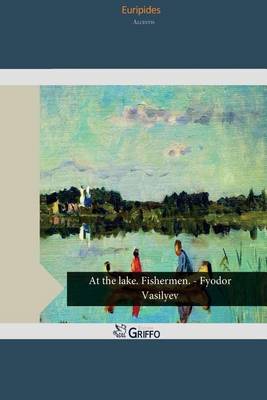BCP Classic Commentaries on Greek and Latin Texts
2 total works
This paperback edition of Euripides' Cyclops (first published in hardback in 1984) provides an invaluable introduction to the text for students. The play itself is the only example of satyric drama to have survived complete into the modern world. This edition uses the Oxford Classical Text, edited by James Diggle, and includes an introduction and commentary. In the introduction, a full historical and analytic account of the genre is given, reconstructing its
origins, development, and decline; the place of satyrs in the religious imagination and practice of the Greeks, and the significance of Euripides' divergences from the Homeric model, are also examined. The commentary looks closely at problems of text, language, and interpretation.
origins, development, and decline; the place of satyrs in the religious imagination and practice of the Greeks, and the significance of Euripides' divergences from the Homeric model, are also examined. The commentary looks closely at problems of text, language, and interpretation.
At once a vigorous translation of one of Euripides' most subtle and witty plays, and a wholly fresh interpretation, this version reveals for the first time the extraordinary formal beauty and thematic concentration of the Alcestis.
The late William Arrowsmith, who was an eminent classical scholar, translator, and General Editor of this highly praised series, rejects the standard view of the Alcestis as a psychological study of the egotist Admetos and his naive but devoted wife. His translation, instead, presents the play as a drama of human existence-in keeping with the tradition of Greek tragedy-with recognizably human characters who also represent masked embodiments of human conditions. The
Alcestis thus becomes a metaphysical tragicomedy in which Admetos, who has heretofore led a life without limitations, learns to "think mortal thoughts." He acquires the knowledge of limits-the acceptance of death as well as the duty to live-which, according to Euripides, makes people meaningfully human and capable of
both courage and compassion. This new interpretation compellingly argues that, for Euripides, suffering humanizes, that exemption makes a man selfish and childish, and that only the courage to accept both life and death leads to the realization of one's humanity, and, in the case of Alcestis, to heroism.
The late William Arrowsmith, who was an eminent classical scholar, translator, and General Editor of this highly praised series, rejects the standard view of the Alcestis as a psychological study of the egotist Admetos and his naive but devoted wife. His translation, instead, presents the play as a drama of human existence-in keeping with the tradition of Greek tragedy-with recognizably human characters who also represent masked embodiments of human conditions. The
Alcestis thus becomes a metaphysical tragicomedy in which Admetos, who has heretofore led a life without limitations, learns to "think mortal thoughts." He acquires the knowledge of limits-the acceptance of death as well as the duty to live-which, according to Euripides, makes people meaningfully human and capable of
both courage and compassion. This new interpretation compellingly argues that, for Euripides, suffering humanizes, that exemption makes a man selfish and childish, and that only the courage to accept both life and death leads to the realization of one's humanity, and, in the case of Alcestis, to heroism.

